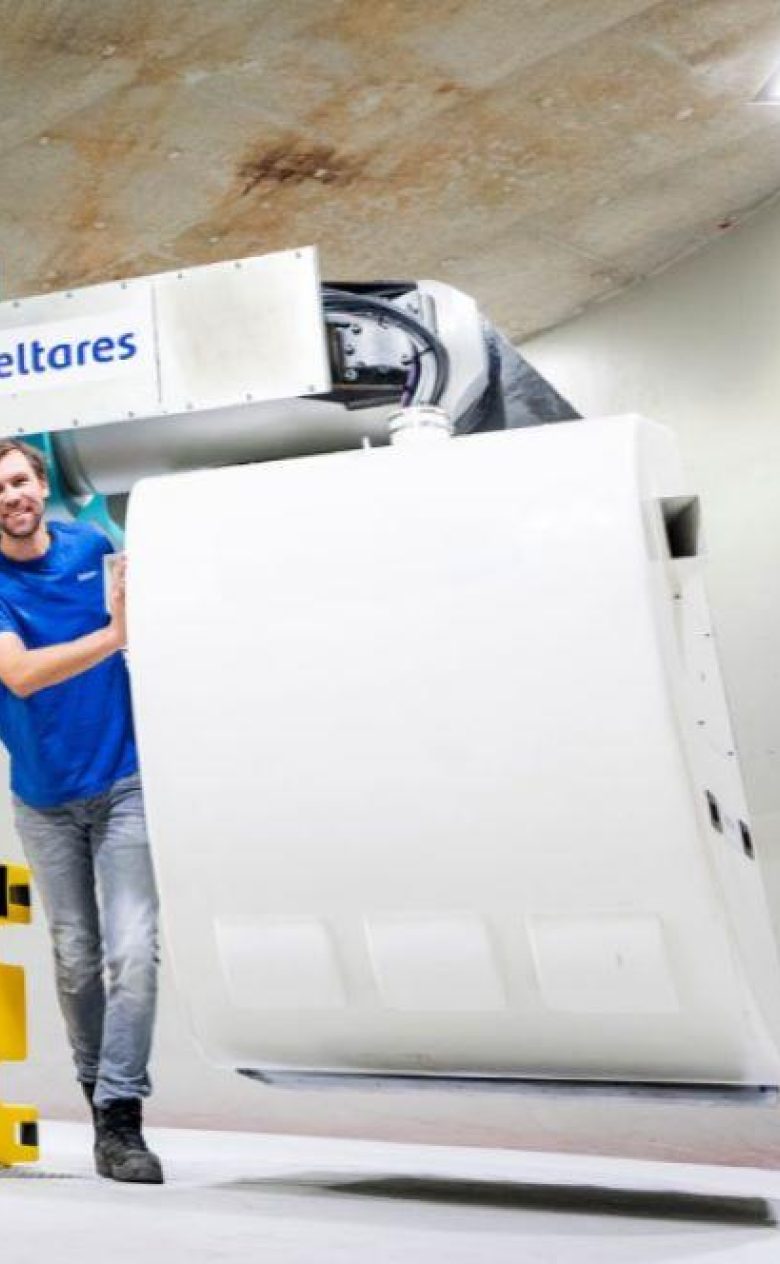Is the current protection against flowslides good enough?
In the Netherlands, dikes protect us against floods, and in Italy and other mountainous countries protection barriers can help protect against landslides. The Flowslide Impact Modelling (FIM) project, coordinated by Deltares, tests which barriers work best.

Mountainous countries use barriers, often walls, to protect buildings and roads from the mixture of water and debris that comes down slopes due to heavy rainstorms. However, we’re not certain that the current structures are strong enough, because climate change is making rainstorms more frequent and intense, and landslides more frequent, faster and stronger.
The FIM project tested the impact of flowslides, a type of landslide that contains a mixture of water and debris, on protection barriers. Nicoletta Nappo, Consultant and Researcher at Deltares, who was involved in these tests, explains: “We studied the impacts of flowslides on two types of barriers: fixed barriers and barriers that have some space to move.”
Reproduce the reality
To carry out the tests, Nappo and her colleagues used the Deltares GeoCentrifuge in Delft. By increasing the gravitational forces in the centrifuge, this geotechnical test facility can scale down geotechnical processes and simulate them to scale. Over a period of three weeks, the researchers tested the interaction mechanisms that occur when a flow-like mass moves down a slope and hits a fixed structure like a protection barrier.
The second type of barrier that they included in the tests is moveable. They’re often more sustainable and include more vegetation, making them more visually appealing. However, Nappo says: “Now that landslides are occurring more often, with different debris-water content and intensity, we need more certainty about which option provides the best protection.”
Safer mountain areas
The testing phase is complete and the researchers are now working on interpreting the results: how the flow-like mass interacts with the two types of barriers. “Some of the structures we have may not provide the best protection on the long term under changing climate,” Nappo says. “That’s why it’s important to study this type of interaction.” The project results will eventually be used to optimise the design of this type of structure and contribute to increased safety in mountainous areas.
The FIM project is led by the University of Salerno (Italy) and coordinated by Deltares. It’s part of GEOLAB, a collaborative research infrastructure of 10 partners in Europe with geo-centrifuges and other facilities. Their research focuses on improving the resilience of Europe’s critical infrastructure.
You have not yet indicated whether you want to accept or reject cookies. This means that this element cannot be displayed.
Or go directly to:

